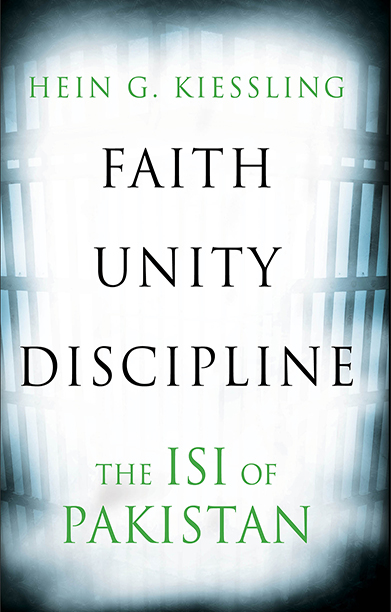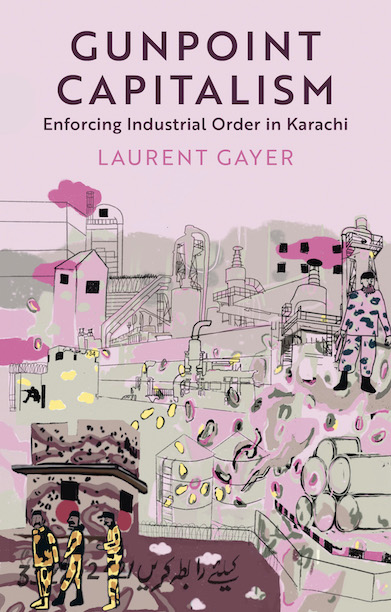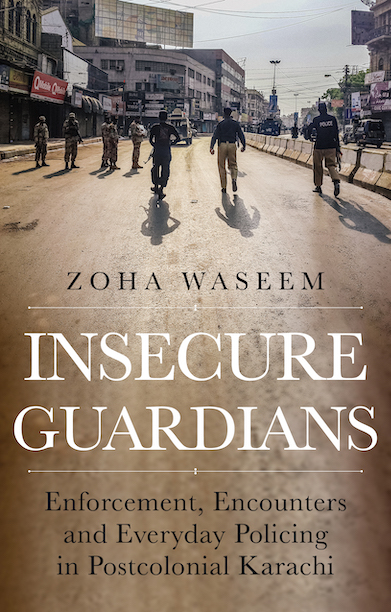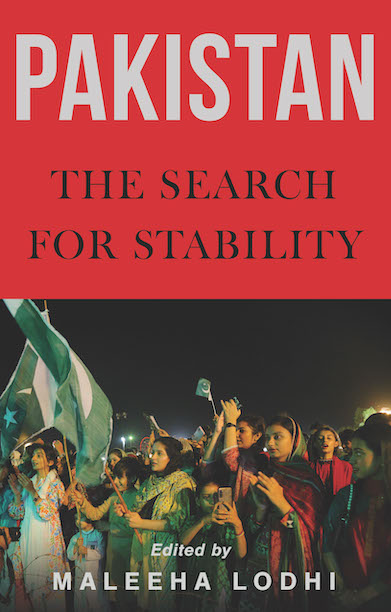Faith, Unity, Discipline
The ISI of Pakistan
Is the ISI an all-knowing, all-seeing threat to those that cross its path? Did it shelter Osama bin Laden in Abbottabad? Kiessling enlightens us on these and related questions in his highly original and provocative book.
Description
Established in the wake of the Indo-Pakistani War of 1947-8 by the Australian army officer Major-General Walter Cawthorne, then Deputy Chief of Staff in the Pakistan Army, Pakistan’s Inter-Services Intelligence (ISI) for years remained an under-developed and obscure agency. In 1979, the organisation’s growing importance was felt during the Soviet war in Afghanistan , as it worked hand in glove with the CIA to support the mujahideen resistance, but its activities received little coverage in news media.
Since that time, the ISI has projected its influence across the region — in 1988 its involvement in Indian Kashmir came under increasing scrutiny, and by 1995 its mentoring of what became the Afghan Taliban was well attested. But it was the organisation’s alleged links with Al Qaeda and the discovery of Osama bin Laden in Abbottabad, at the heart of Pakistan’s military zone, that really threw it under the spotlight. These controversies and many more have dogged the ISI, including its role in Pakistan’s testing of a nuclear weapon in 1998 and its links with A.Q. Khan.
Offering fresh insights into the ISI as a domestic and international actor based on intimate knowledge of its inner workings and key individuals, this startlingly original book uncovers the hitherto shady world of Pakistan’s secret service.
Reviews
‘In Faith, Unity, Discipline, Hein Kiessling explores its shadowy history … Notable episodes from the ISI’s past have been covered recently elsewhere … however, the ISI is seen out of focus or relegated to the sidelines. Mr. Kiessling, whose style, befitting his subject, is lean and restrained, fills this void nicely.’ — The Wall Street Journal
‘Former ISI chiefs who spend their time on the seminar circuit defending their agency’s action have a new cause for worry thanks to a new book, Faith, Unity, Discipline, by German historian Hein G. Kiessling, which takes an incisive look into the organisation’s functioning.’ — The Wire
‘Sheds new light and insight into the trajectory of Pakistani politics from Ayub Khan to Nawaz Sharif (in his third stint). As such, it is required and compelling read for all students of South Asia, beyond security.’ — The Indian Express
‘Provides a comprehensive account of how the tentacles of the ISI extend from the Pakistan military to virtually every aspect of national life in Pakistan. Kiessling also dwells on the various pursuits of the ISI, ranging from interfering in domestic politics, manipulating the media and mortally threatening individuals who come in its way, while even eliminating those found to be “inconvenient”.’ — G. Parthasarathy, Outlook India
‘An excellent account of the ISI’s development and history which is especially helpful on its early years. This book will be an important addition to both Pakistan studies and to intelligence studies.’ — Bruce Riedel, Brookings Institution Intelligence Project, and author of Deadly Embrace: Pakistan, America, and the Future of the Global Jihad
‘By definition, studying intelligence agencies is particularly challenging. This book meets that challenge by relying on open and confidential sources. It is, to date, the most comprehensive analysis of the ISI. Tracing its history since its inception, it shows how foreigners helped Pakistan to build the ISI, how the agency faced fiascos during the wars against India, and how it became a major actor in domestic politics under Bhutto. It will never cease to be one, but it played a more dramatic role during the anti-Soviet Jihad, while collaborating with the CIA. The relative autonomy of the ISI vis-à-vis the Pakistani army and its relations with islamists are some of the key questions addressed by the author of this remarkable book.’ — Christophe Jaffrelot, author of The Pakistan Paradox: Instability and Resistance






